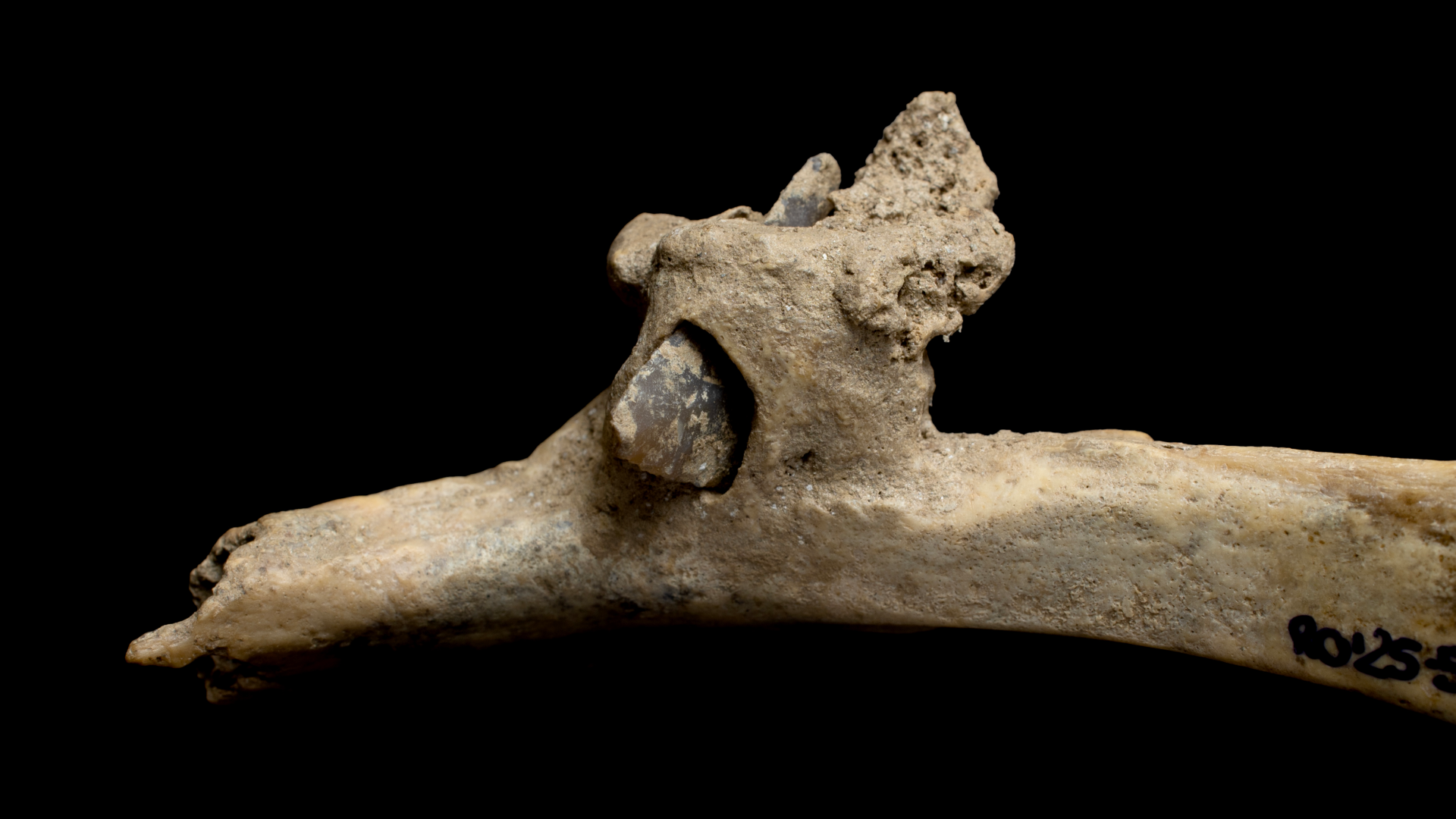
Diets that are low in fiber may cause irreversible changes to populations of gut bacteria, and those changes may be passed on over generations, new research suggests.
In experiments, mice that were fed a low-fiber diet lost certain species of the bacteria in their gut over time, and the mice did not completely recover them even after they were switched to a high-fiber diet.
What's more, the depleted microbial community, called the microbiome, was passed on from parent to offspring, and worsened over time: After four generations of mice had eaten a low-fiber diet, most of the bacteria species normally found in the animals' gut microbiome were completely missing, the researchers found.
The study, which was published Wednesday (Jan. 13) in the journal Nature, may have implications for humans, said study lead author Erica Sonnenburg, a microbiome researcher at Stanford University in California. [5 Ways Gut Bacteria Affect Your Health]
"We all accept that we pass our human genes on to our children," Sonnenburg told Live Science. But "we also have to consider that our children inherit the microbial set of genes that we pass on to them," she added. "We need to really think about the dietary decisions that a generation makes, because those dietary decisions can dramatically influence the microbiome that we then pass on to our offspring."
Partners in evolution
For 150,000 years, early modern humans likely ate a high-fiber diet, rich in unrefined plants, fruits, nuts and seeds, Sonnenburg said. But humans can't digest fiber on their own — a community of microbes co-evolved with people and helped to process fiber in the intestinal tract.
Get the world’s most fascinating discoveries delivered straight to your inbox.
Things changed over the past 100 years, as industrialization led to the development of fast and highly processed, low-fiber foods. People in the Western world now consume just an average of 15 grams of fiber per day, which is one-tenth of the fiber eaten by some modern-day hunter-gatherer populations, the researchers said.
The trend toward a lower-fiber diet accelerated in the past 50 to 60 years, meaning that now three to four generations of people have grown up eating low-fiber diets, Sonnenburg said.
Changing diet
To investigate the impact of this dietary shift, Sonnenburg and her colleagues raised a set of mice in a completely germ-free environment so that their intestinal tracts were free of microbes. Then, they transplanted microbes from human guts into those of the mice.
Half of the mice ate high-fiber, plant-rich food, while the other half consumed kibble that was identical in terms of protein, fat and calorie content, but contained almost no fiber.
Within a few weeks, the total number of different bacterial species in the fiber-free mice dwindled, and for more than half of the microbial species, the number of cells in the population declined by at least 75 percent.
After a seven-week stint on the low-fiber diet, the mice were switched to a high-fiber diet. Although most of the microbial species originally found in the gut rebounded, at least one-third never returned to their original abundance, the researchers said.
Next, the scientists reared more mice in a germ-free environment, where they were exposed to microbes only through their parents (that had eaten low-fiber diets). Each generation of mice offspring also ate a low-fiber diet.
Each generation showed a progressively lower diversity in their gut microbes. By the fourth generation, three out of four of the bacterial species originally found in the mice's gut were gone. And when the great-grandchildren of the original mice were put back on a high-fiber diet, most of the lost microbes never re-emerged. However, when the scientists gave those fourth-generation mice a fecal transplant (in which researchers processedgut material from one mouse and used a tube to deliver it into another's digestive tract), along with a high-fiber diet, it helped the gut microbiome return to its original state, the researchers found.
In contrast, the microbial community in the comparison group of mice, which were fed a high-fiber diet, did not experience dramatic population shifts.
Long-term consequences
The findings dovetail with the results of other studies done in humans. For instance, hunter-gatherers in Papua New Guinea, Africa and South America live on different continents yet harbor the same species of microbes in their gut — and those microbes are absent in people living in developed countries, Sonnenburg said. The hunter-gatherers also have more diverse gut microbial communities.
It's still not clear that the Western, low-diversity gut microbiome poses a problem for human health. But studies have tied lower gut microbe diversity in the human gut to conditions such as allergies, asthma and obesity. And pathogenic bacteria, such as Clostridium difficile, have an easier time gaining a foothold after a course of antibiotics have wiped out the beneficial bacteria in the gut, Sonnenburg said.
If low-diversity microbiomes do lead to health problems, and switching to a high-fiber diet doesn't completely fix those problems, one possible solution would be to do fecal transplants from hunter-gatherers or others who eat more traditional diets into people who eat lower-fiber diets, Sonnenburg said. However, a lot of work must first be done to ensure that any poop transplants would be beneficial and safe, she added.
In the meantime, it has been shown that high-fiber diets do increase microbial diversity, and thousands of studies tie a diet rich in fruits and vegetables to a host of health benefits. Therefore, eating more fruits and veggies is a simple, healthy step people can take right now, Sonnenburg said.
"We're this composite organism of human parts and microbial parts," Sonnenburg said. "Taking care of this microbial organ we have inside of us could be one of the biggest things we can do to improve our health."
Follow Tia Ghose on Twitter and Google+. Follow Live Science @livescience, Facebook & Google+. Original article on Live Science.

Tia is the managing editor and was previously a senior writer for Live Science. Her work has appeared in Scientific American, Wired.com and other outlets. She holds a master's degree in bioengineering from the University of Washington, a graduate certificate in science writing from UC Santa Cruz and a bachelor's degree in mechanical engineering from the University of Texas at Austin. Tia was part of a team at the Milwaukee Journal Sentinel that published the Empty Cradles series on preterm births, which won multiple awards, including the 2012 Casey Medal for Meritorious Journalism.
